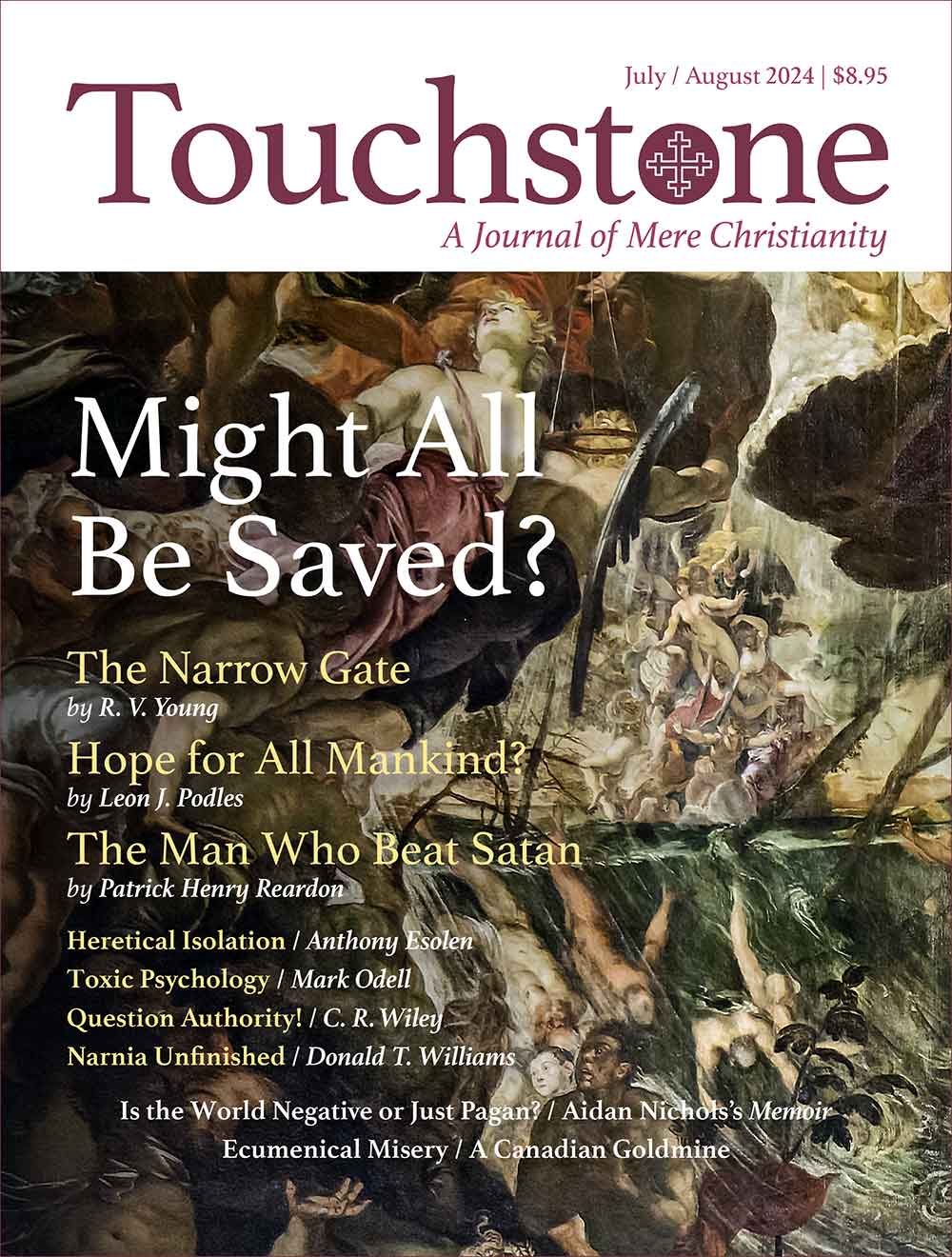Reasonable Redemption
According to Athanasius of Alexandria, man’s repentance from sin would not have been sufficient to restore him to friendship with God. To imagine otherwise is to suppose an inadequate and unbiblical view of sin. Sin is not a merely moral offense after all, an injury readily cured by simple repentance. Still less is it just a forensic declaration of guilt that could be reversed by a contrary declaration of reprieve. Nor is sin just a spiritual state that could be altered by some kind of spiritual adjustment. And certainly sin is not the sort of affront that can be remedied by a sincere apology.
According to Holy Scripture, sin is bondage to death and corruption. Death and corruption are not punishments imposed on sin from without. They are internal to sin itself and integral to the biblical concept of sin; they are the very “embodiment” of sin. Man was warned, “in the day that you eat of it, you will die!” Thus the Apostle Paul declared, “sin reigned in death” (ebasilevsen he hamartia en to thanato—Rom. 5:21). To deal with sin, it was necessary to deal with death.
Defeat in the Flesh
For this reason, Athanasius argued, the power of sin, which is the corruption of death, had to be defeated in the flesh. This necessity of the Word’s enfleshment pertained to what Athanasius called “the divine reasonableness” (to evlogon to pros ton Theon) (On the Incarnation 7).
Whereas many later theologians, especially in the West, thought of Redemption in terms of the divine justice, Athanasius thought of it in terms of the divine “reasonableness” or evlogon, that sustained propriety, coherence, consistency, and proportion that distinguishes all of God’s dealings with men.
The death of Christ in the flesh, in the eyes of Athanasius, was directed, then, not at God’s offended justice, but at man’s bondage to corruption. God had not told Adam, “in the day that you eat of it, I will get terribly upset and not like you anymore,” but “in the day that you eat of it, you will die.” Sin entered into man; it did not affect God. For sin to be defeated, then, something in man had to change.
Now, since man had fallen in the flesh, reasoned Athanasius, it was reasonable, symmetric, appropriate, and proportionate—in short, evlogon—that man be restored through the flesh. “For this purpose, then, the incorporeal and incorruptible and immaterial Word of God entered our world” (op. cit. 8).
Thus, Athanasius explained, it pertained to the Word,
and to him alone, to bring again the corruptible to incorruption and to guard for the Father his reasonableness in all things (to hyper panton evlogon). Being the Word of the Father and above all things, he alone was consequently able and qualified to recreate (anaktisai) all, to suffer for all (hyper panton pathein), and to represent all to the Father. (op. cit. 7)
A Fair Fight
From Athanasius, Leo of Rome received the idea of the divine “reasonableness” and extended that idea in a fresh and interesting direction; he spoke of the divine “fairness” (aequitas). What would God have proved, wondered Leo, if he had used his divine power to conquer the forces of darkness? After all, Satan is no match for God. A struggle between divine omnipotence and demonic power is not a fair fight; there is no aequitas.
But however we assess the insult the fallen spirits gave to God, the real victim of their malice was man. Let us, then, decided the Wisdom of God, make this struggle with Satan a fair fight. Let us devise a way for Satan to be defeated by a human being. This is entirely fitting, since human beings are the ones Satan holds in bondage.
Leo elaborates this divinum consilium:
Patrick Henry Reardon is pastor emeritus of All Saints Antiochian Orthodox Church in Chicago, Illinois, and the author of numerous books, including, most recently, Out of Step with God: Orthodox Christian Reflections on the Book of Numbers (Ancient Faith Publishing, 2019).
subscription options
Order
Print/Online Subscription
Get six issues (one year) of Touchstone PLUS full online access including pdf downloads for only $39.95. That's only $3.34 per month!
Order
Online Only
Subscription
Get a one-year full-access subscription to the Touchstone online archives for only $19.95. That's only $1.66 per month!
bulk subscriptions
Order Touchstone subscriptions in bulk and save $10 per sub! Each subscription includes 6 issues of Touchstone plus full online access to touchstonemag.com—including archives, videos, and pdf downloads of recent issues for only $29.95 each! Great for churches or study groups.
Transactions will be processed on a secure server.
more on Christianity from the online archives
more from the online archives

8.4—Fall 1995
The Demise of Biblical Preaching
Distortions of the Gospel and its Recovery by Donald G. Bloesch
calling all readers
Please Donate
"There are magazines worth reading but few worth saving . . . Touchstone is just such a magazine."
—Alice von Hildebrand"Here we do not concede one square millimeter of territory to falsehood, folly, contemporary sentimentality, or fashion. We speak the truth, and let God be our judge. . . . Touchstone is the one committedly Christian conservative journal."
Support Touchstone
—Anthony Esolen, Touchstone senior editor













